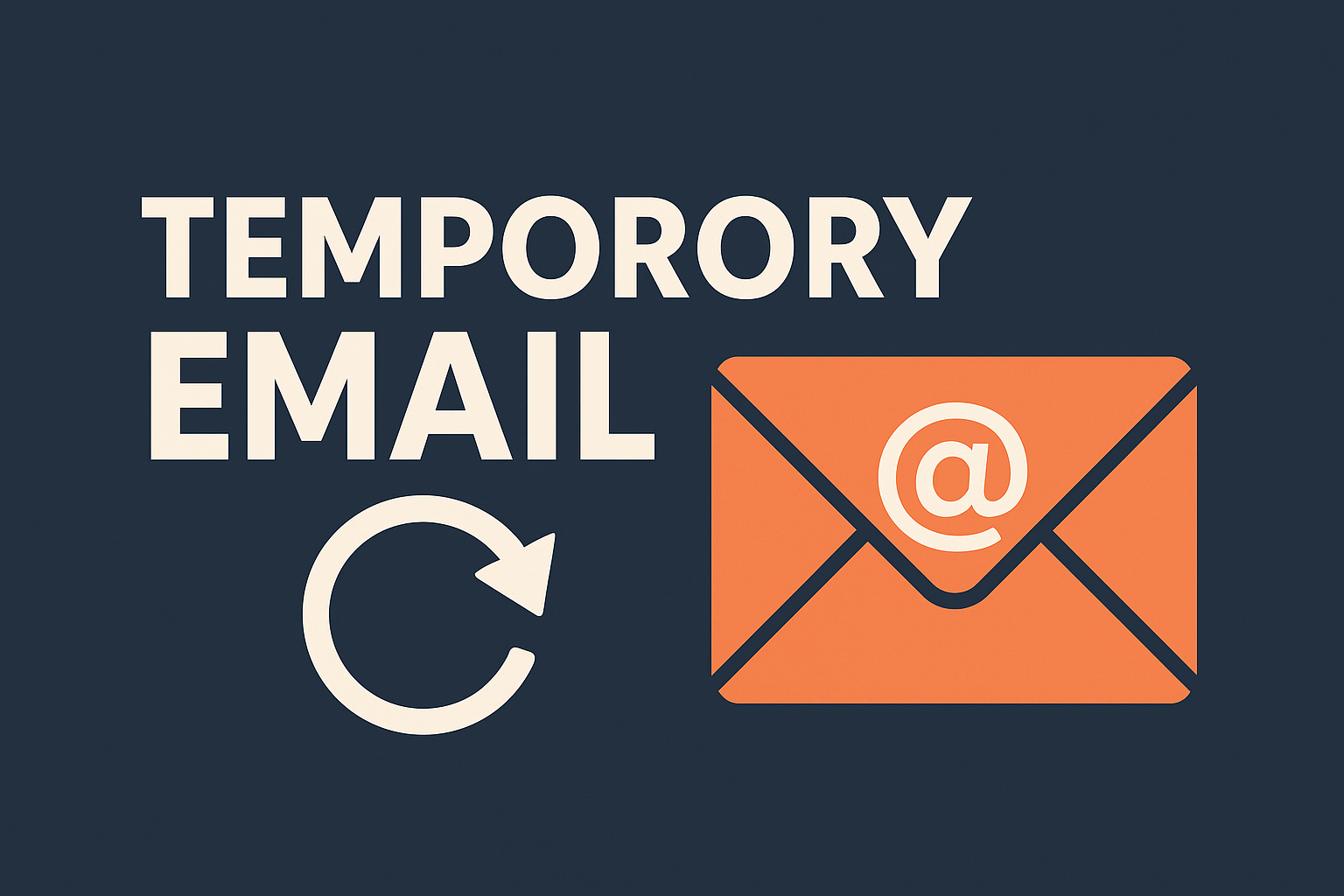

Temperory Email: Your Ultimate Guide to Privacy, Convenience & Online Safety
What Is a Temporary Email?
A temporary email—more commonly spelled “temporary email” or “throwaway email”—is a disposable email address generated for short‑term use. These addresses are not tied to your personal data and typically self‑destruct after minutes or days. They are ideal for single-use scenarios like verification codes or sign-ups, where you want to avoid spam or share personal information.
Why Privacy Matters in Digital Communication
Every online service you sign up for can expose your email to spam, trackers, or phishing. Temperory email protects your real inbox, preserving privacy and reducing digital clutter. As Wired notes, using disposable addresses helps evade spam and prevents tracking or data collection by unknown third parties .
How Does Temporary Email Work?
A provider issues you a random temporary email address without registration.
Incoming mail is displayed on the provider’s webpage or inbox.
Emails are stored temporarily, often for minutes or up to a few days, before auto-deletion
You typically cannot send mail from a temporary email just receive and read it
Some platforms like SmailPro offer varied advanced features—storage history, alias masking, Gmail/Outlook domains, and API access for power users
Benefits of Using Temporary Email
Spam protection: Keeps marketing and promotional emails out of your main inbox
Privacy preservation: Avoid linking personal emails to untrusted sites.
No commitment: Once expired, the address disappears. Ideal for risky or one-time tasks.
Easy and fast: No registration required in many services.
Common Use Cases
Signing up for online services or trials without exposing your primary email
Downloading resources or accessing gated content
Creating disposable accounts (for testing, app demos, forums)
Temporary interaction with sites that may harvest emails
Using for marketing or bot-testing purposes
Choosing the Right Temperory Email Service
Some of the top services include:
Temp Mail / Temp‑mail.org – 10‑minute lifespan, no sign-up, secure reception interface
Tempr.email – Offers many domains, up to 30 days retention, EML file downloads, privacy‑oriented
YOPmail – Instant aliases, auto‑exist forever, messages stored for 8 days, allow replies between YOPmail accounts
EmailOnDeck, DisposableMail, Email Fake, GuerrillaMail, Dropmail.me – offer varied features: recoverable inboxes, password-protected aliases, forward options reddit.com.
Look for features like domain variety, retention time, storage limits, ability to reply, anonymity level, and mobile‑friendliness.
Temperory Email vs. Traditional Email
| Feature | Temperory Email | Traditional Email |
|---|---|---|
| Lifetime | Minutes to days; auto-deletion | Long-term use, recovery possible |
| Privacy | Anonymous, not tied to identity | Linked to personal data |
| Message features | Receive only—no sending, no attachments | Full email functionality |
| Ideal Use | One-time or disposable sign-ups | Ongoing personal or business accounts |
Temporary email is ideal when you need anonymity and minimal retention. Traditional email is better for long-term correspondence and account recovery.
Risks & Limitations of Temporary Email
No data recovery: Once expired, messages or addresses vanish. Unsuitable for long-term accounts.
Limited features: Many services block sending, attachments, or encryption.
Blocked by websites: Some domains used by disposable services are blacklisted.
Limited security: Inboxes are sometimes public or unprotected. Always treat email as potentially visible
Best Practices for Safe Use
Use a unique address for each service or signup to avoid cross-tracking.
Track expiration: choose appropriate time limits depending on use.
Avoid entering sensitive personal or financial data via a disposable inbox.
Cleanly discard the address when no longer needed.
For frequent use, choose trusted services with clear privacy policies.
For developers or testers: use APIs like SmailPro’s for automation and managing many addresses
Conclusion: Embrace Privacy & Convenience With Temporary Email
Temperory email (temporary or disposable email) is a fast, effective way to protect your privacy, avoid spam, and maintain control over who can reach your main inbox. While there are limitations—such as short lifespan and limited features—using it appropriately can significantly reduce digital footprint and clutter.
For occasional registrations, untrusted sites, or testing environments, temperory email offers unmatched simplicity and security. Just pick a trustworthy provider, recognize its limitations, and use it responsibly—privacy and convenience await.